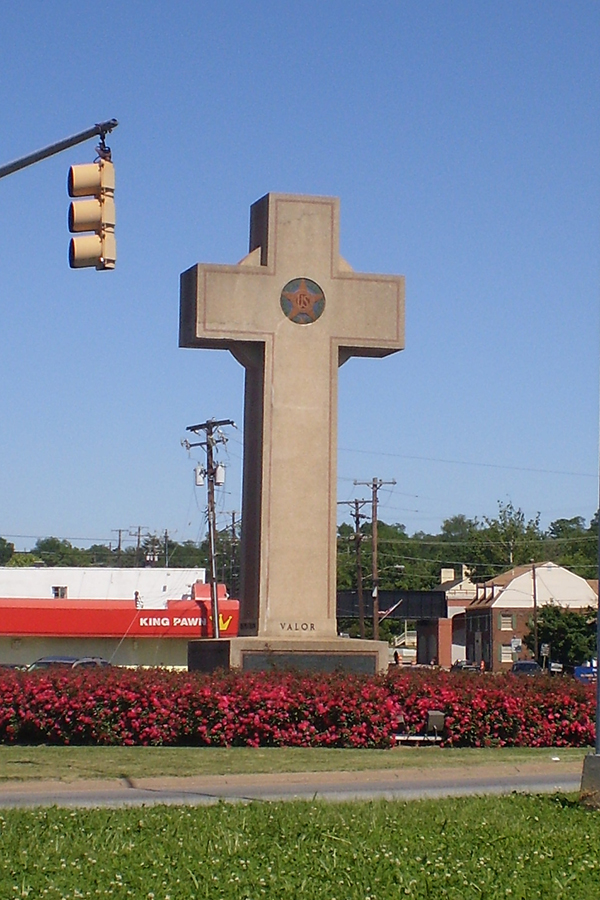The U.S. Supreme Court is weighing in on the constitutional question of whether the symbol of Christ’s crucifixion is necessarily religious.
The high court agreed Nov. 2 to review a lower court ruling that a 40-foot cross at the center of one of the busiest intersections in Prince George’s County, Maryland, violates the First Amendment’s ban on establishing or favoring a religion.
The Fourth U.S. Circuit Court of Appeals ruled in a 2–1 decision in October 2017 that the Peace Cross standing on government property in Bladensburg, Maryland, breaches the “wall of separation” between church and state mandated by the Constitution.
Primary effect
The majority determined that the monument erected by the American Legion in 1925 to honor veterans of World War I and maintained with government funds “has the primary effect of endorsing religion and excessively entangles the government in religion.”
Chief Judge Roger L. Gregory filed a dissenting opinion that “while displaying a religious symbol” the monument was built to memorialize the 49 county residents who gave their lives in battle, and no reasonable observer would understand it “to be a divisive message promoting Christianity over any other religion or nonreligion.”
The American Legion, represented by First Liberty Institute, a conservative religious liberty advocacy and legal defense organization located in Plano, Texas, said the decision will require not only demolition or defacing of the Bladensburg cross, but also removal of two principle World War I memorials in Arlington National Cemetery and hundreds of similar monuments across the country.
The American Humanist Association, which filed the lawsuit challenging the cross in 2014, says the proper question “is not whether the Christian cross at issue can reasonably be perceived as a war memorial, but rather whether it can reasonably be perceived as a war memorial that commemorates Christians to the exclusion of all others.”
“Surely a Christian cross war memorial does not commemorate, and necessarily excludes, the 3,500 Jewish soldiers who gave their lives for the United States in World War I,” the association argued in its brief. “It also co-opts a sacred symbol for government military purposes, offending many Christians.
The Beckett Fund for Religious Liberty, among groups filing briefs arguing that the monument should remain, asked the court to clarify what test to use to decide whether a government is unconstitutionally endorsing religion.
In 1971 the Supreme Court established in Lemon v. Kurtzman a three-prong test to avoid violating the Establishment Clause. To be constitutional a law must have a secular legislative purpose, neither promote nor inhibit religion and not foster “excessive government entanglement with religion.”
In 2014 the Supreme Court decided 5–4 in Town of Greece v. Galloway that church-state conflicts “must be evaluated against the backdrop of historical practice” in upholding a town board’s right to maintain its tradition of opening its monthly meetings with sectarian prayer.
‘Ceremonial purpose’
“Ceremonial prayer is but a recognition that, since this nation was founded and until the present day, many Americans deem that their own existence must be understood by precepts far beyond the authority of government to alter or define and that willing participation in civic affairs can be consistent with a brief acknowledgment of their belief in a higher power, always with due respect for those who adhere to other beliefs,” Associate Justice Anthony Kennedy wrote in the majority opinion.
“The prayer in this case has a permissible ceremonial purpose,” Kennedy opined. “It is not an unconstitutional establishment of religion.” (BNG)






Share with others: